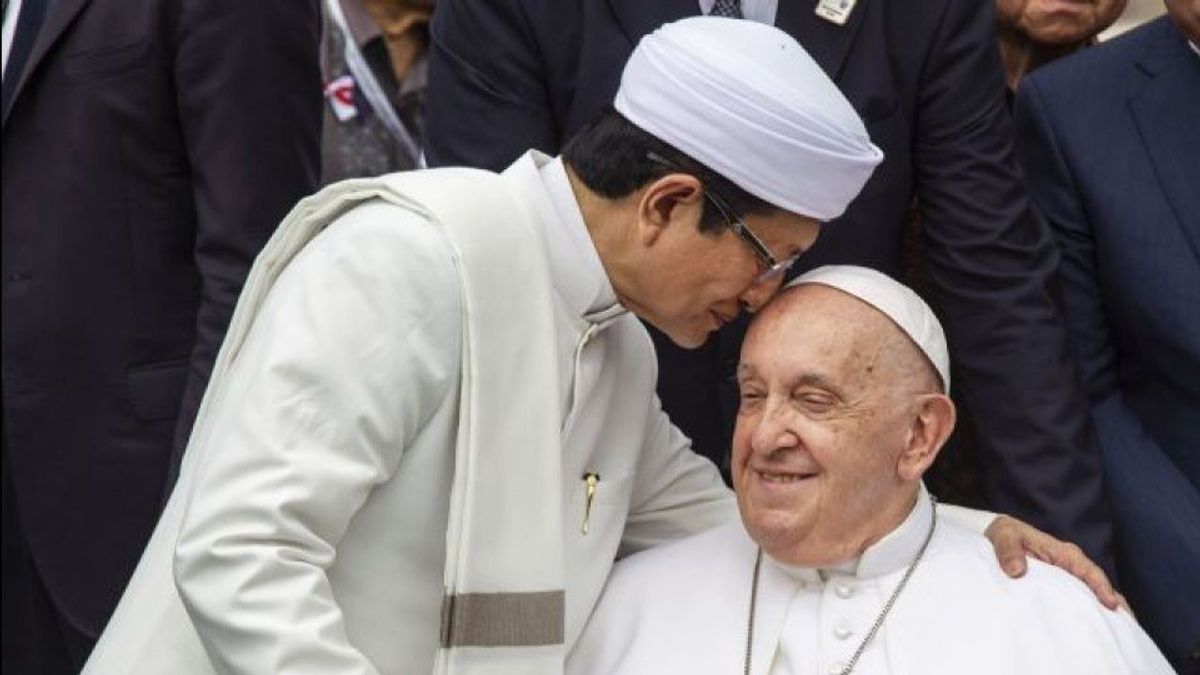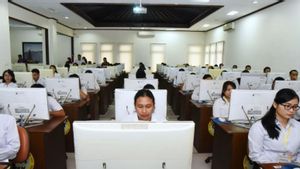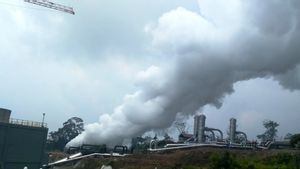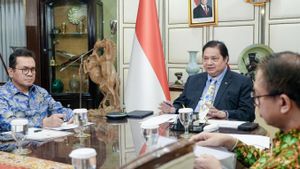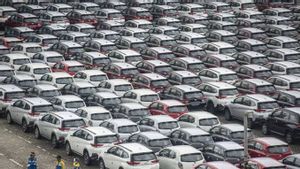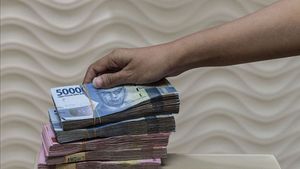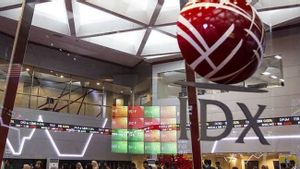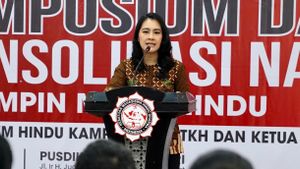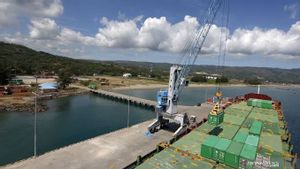Pope Francis' visit to Indonesia on September 3-6, 2024 is considered to be a momentum to reduce the problem of social inequality in the country, because the leadership of the World Catholic Church really cares about the issue of inequality, inequality and poverty in the world.
This was emphasized by economist from the Faculty of Economics and Business, University of Indonesia (FEB UI) Teguh Dartanto in Depok, West Java, Saturday.
According to him, the issue of inequality is a global problem that also threatens Indonesia. Therefore, he is grateful because world leaders like the Pope are so concerned about raising this issue to a common issue.
Teguh further explained that although inequality in Indonesia according to data from the Central Statistics Agency (BPS) in general is still in a moderate context, namely 0.379 in 2024, it is necessary to look more deeply and in detail because there are bigger problems. For example, in terms of inequality in asset ownership.
The study I did was related to the inequality of land assets in Indonesia which was quite sad. It turns out that around 56 percent of farmers in Indonesia are smallholder farmers where the land area is only 1,800 square meters, it is not enough to support the necessities of life. Meanwhile, around 6 percent of the rich farmers control the land around 5.4 hectares on average, "said Teguh.
According to him, this means that the ownership of land assets is very lame. As a result, the poor from the farmer community will find it difficult to rise and grow.
The next example is the financial asset gap. From a study conducted by Teguh, it shows that there are 305 million accounts or 98.2 percent of the total accounts in Indonesia only control about 14 percent of the total savings.
On the other hand, about 0.03 percent or 103,000 accounts control 47.5 percent of total savings with an average savings value of IDR 5 billion.
There is also an opportunity gap or inequality for Indonesian children to access quality education.
He said the opportunity for children in the Jabodetabek area was not equal to many other children outside the region to obtain quality education.
The gap in access to education can be said to be the most important issue of inequality.
This is because quality education will be able to accumulate knowledge, finance, and future assets.
"This must be our government's solution in the future on how to guarantee equality, equal opportunities, for all the nation's children. So that it can optimize the potential of Indonesian children in the future," he said.
SEE ALSO:
Teguh revealed that the gap in Indonesia was widening due to several factors.
First, because of the COVID-19 pandemic. This reduces the welfare of the middle class in Indonesia. The pandemic, he said, widens the gap in financial assets.
Second, because of the inequality of opportunity itself. Such as opportunities to learn, school opportunities, to opportunities for digital access. He gave an example, the imbalance in digital access is felt by 10 percent of the poorest people.
The vulnerable community has only about 30 percent of digital access. Meanwhile, the community is classified as rich in access to around 85 percent. This accumulates inequality from the knowledge itself.
The rich are getting smarter while the poor are stagnant. When the accumulation of knowledge is increasingly unequal, in the future job opportunities will also become different.
The poor will never be able to work in decent jobs. This is what the solution needs to be found. Apart from talking about inequality as an output, we must also focus on how to provide equal opportunities to all the nation's children with various opportunities to optimize existing potentials," he said.
Teguh also explained that in the context of Indonesia, the pattern of economic growth is less inclusive. This means that growth is not equally enjoyed by the entire community. Economic growth is only enjoyed by certain economic class groups.
The poor groups with various supports such as government subsidies enjoy various assistance. On the other hand, the middle class has a bloody economic condition.
BPS released data until last August that Indonesia's middle class decreased in number. Indonesia's middle class proportion in 2024 is 47.85 million people, lower than in 2019 which was 57.33 million people.
"I am afraid that there will be divided society where there is no economic group in the middle but only the ones under the same one above. This is what needs to be supported because during the last five years our economic growth has been enjoyed by capital owners, not workers. Compared to 2019 until now (pre-pandemic), it has not yet recovered," he said.
The English, Chinese, Japanese, Arabic, and French versions are automatically generated by the AI. So there may still be inaccuracies in translating, please always see Indonesian as our main language. (system supported by DigitalSiber.id)
